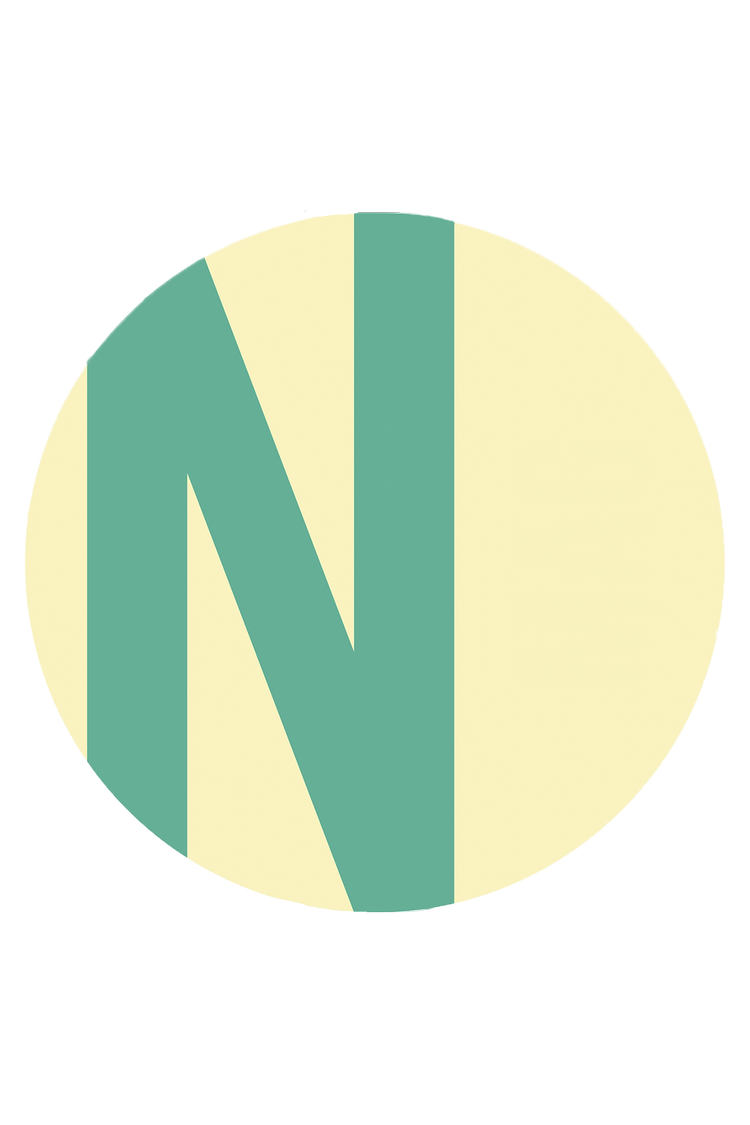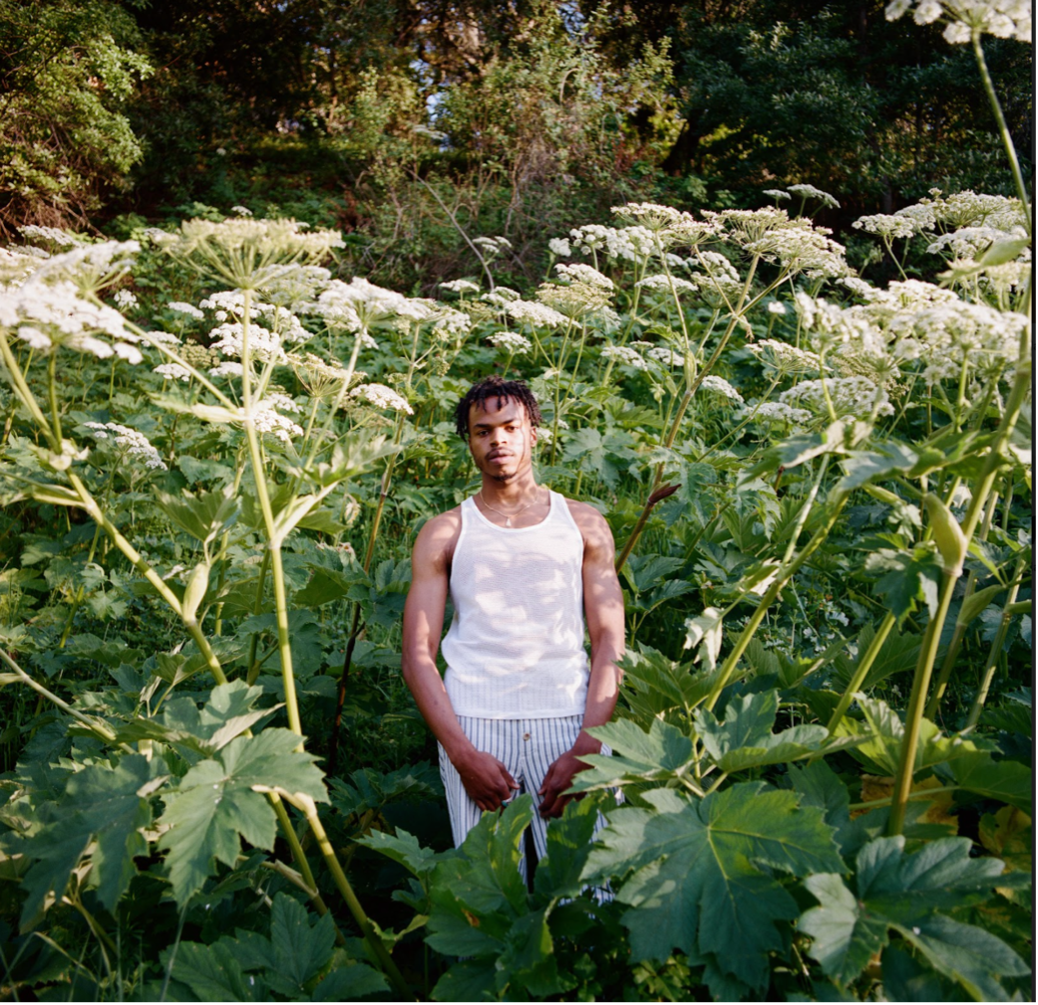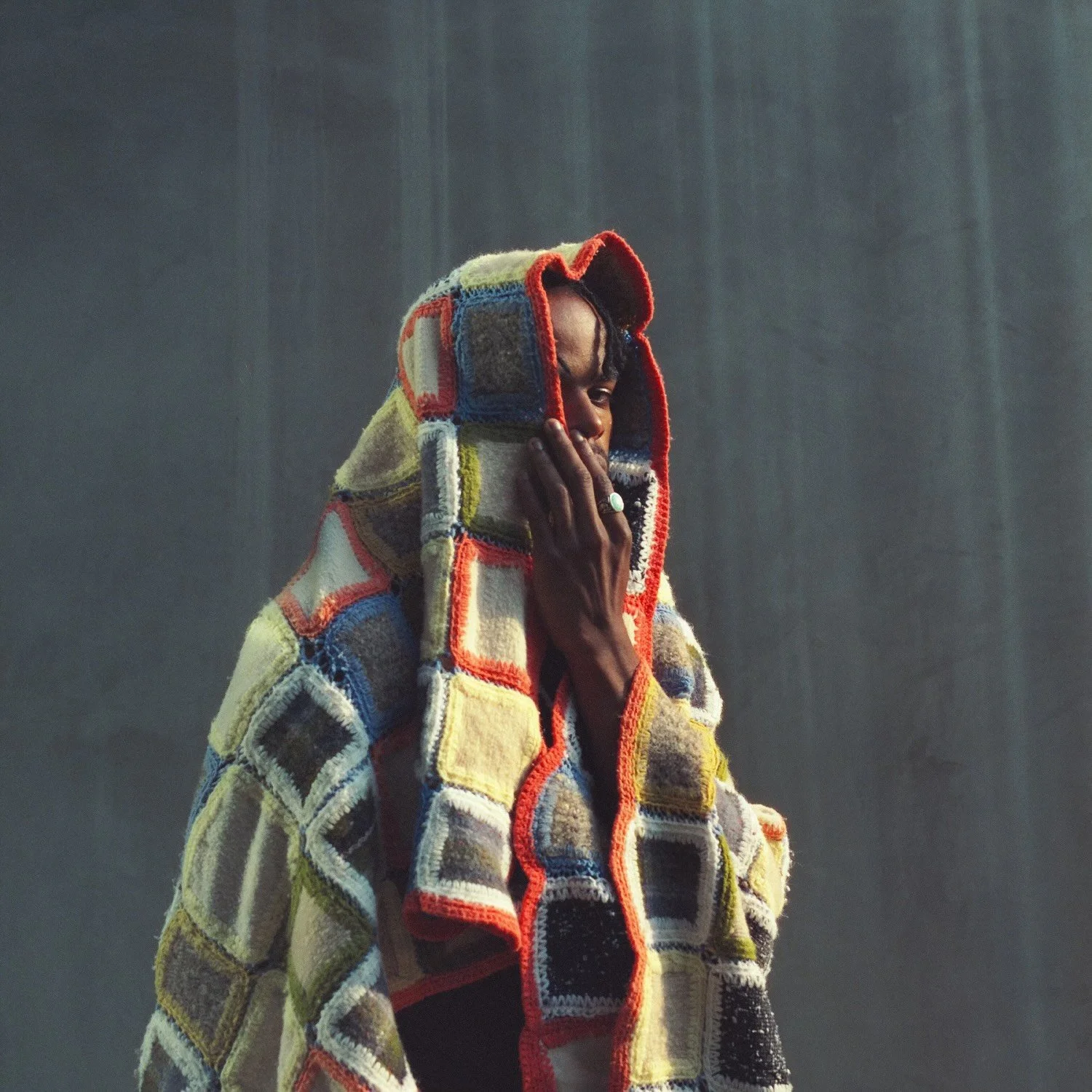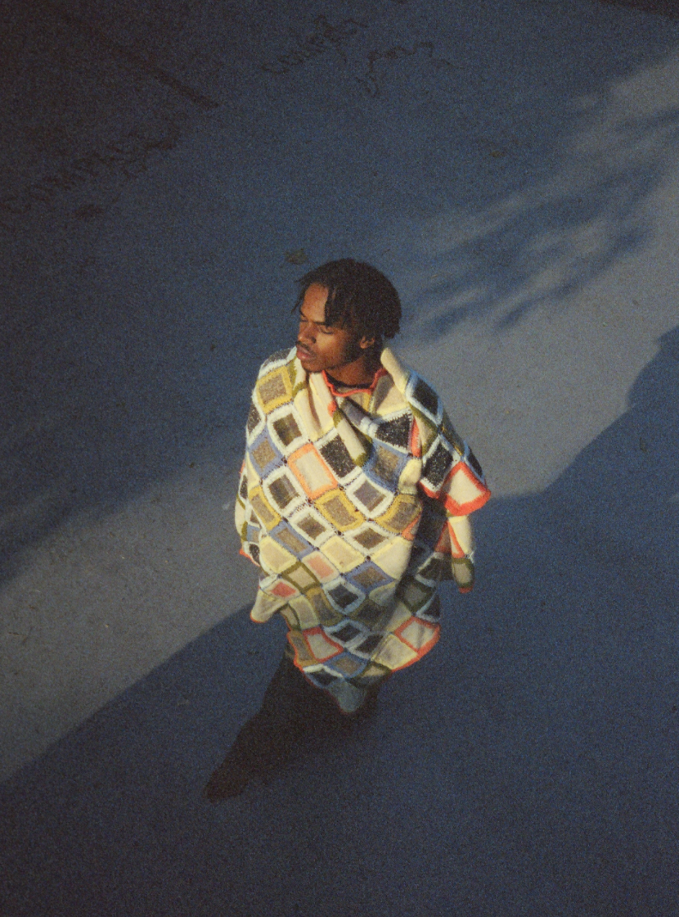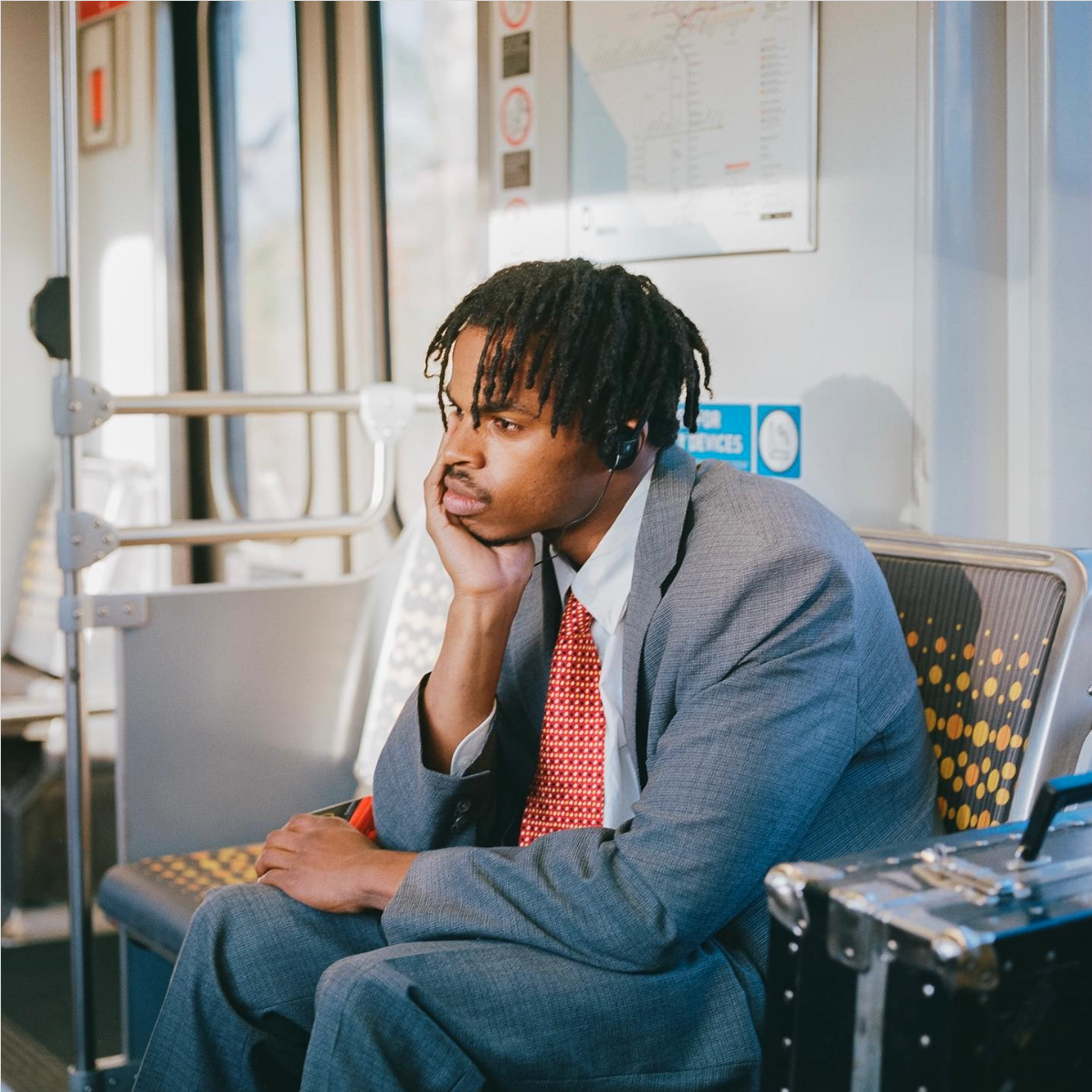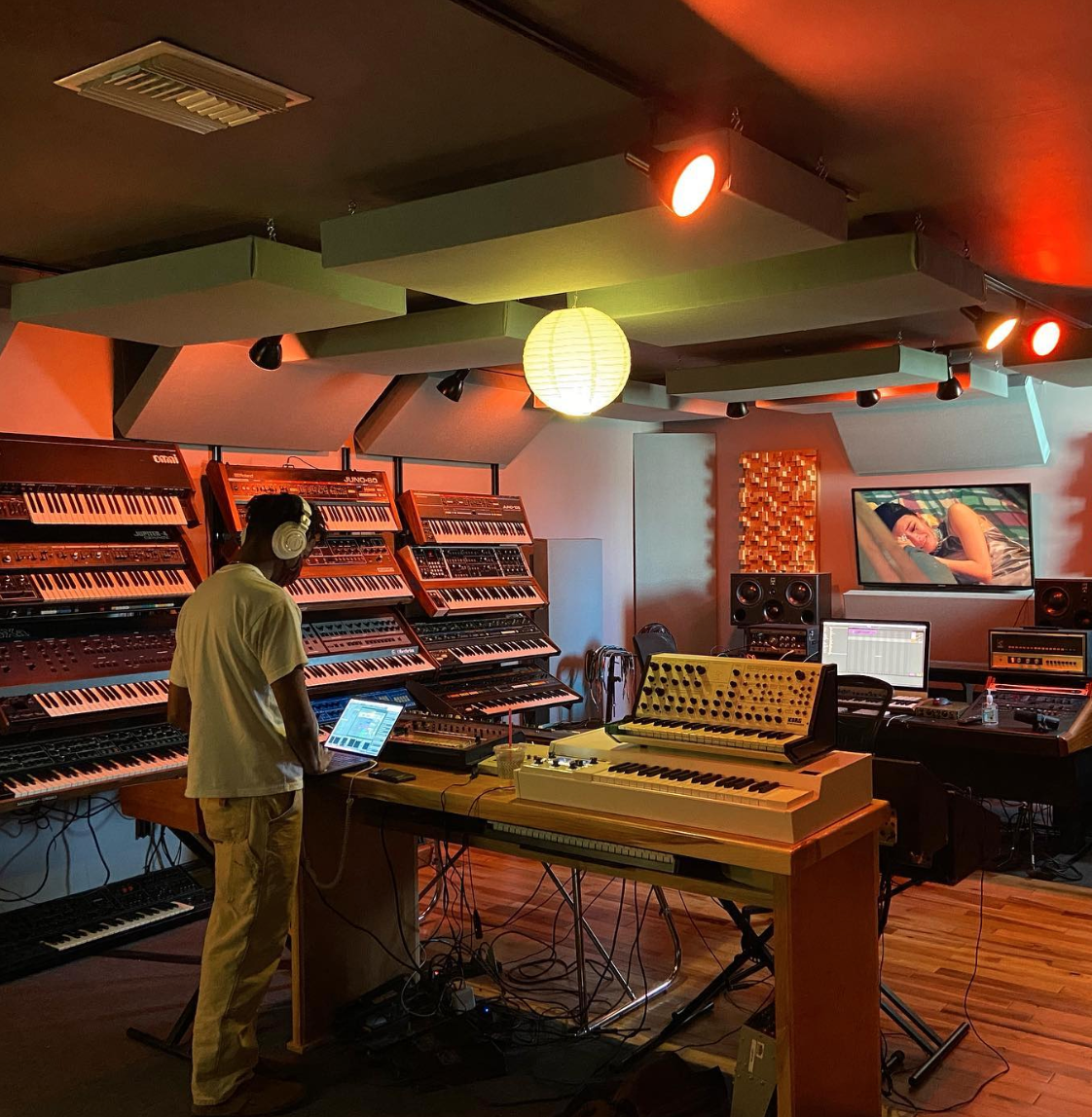Photo Credit: Justin Dakdouk
Written by: Oliver Heffron
Elujay is one of a kind. The multi-talented producer/singer/songwriter/director has crafted a unique musical universe for himself, encompassing aspects of alternative, r&b, jazz, hip-hop, and soul with a distinct dreamy, atmospheric finish. Since his breakout debut album Jentrify, a love letter to his hometown Oakland and an ode to its displaced people, Elujay has independently built a stellar catalog and loyal following by pushing his boundaries with genre-bending projects like Adojio. He controls every aspect of his music–producing all his songs from scratch with collaborators he trusts, and owning all his masters. His creative ambitions extend past music, directing and editing the music video for "Ratrace," another step closer to his dream of directing his own film. With the "garage" sound and genres like bedroom pop exploding in popularity, it's clear how independent, DIY artists like Elujay have influenced the music industry towards more intimate takes on popular music and audiences to support independent artists who take pride in their craft.
Following his collaborative project with J.Robb, GEMS IN THE CORNERSTORE, and fresh off the success of his modeling debut while scoring the TOMBOGO show during New York Fashion Week, Elujay released his most impressive project yet: Circmvnt–a multi-layered genre-fusing album, whose groovy melodies contrast its lyrical dread to form a sweet psychedelic melancholy.
"Hummingbird (quiet as Kept)" opens the album with a shimmering, blissful soundscape and a haunting, tragically accurate image of death, as suffering becomes normal during the pandemic, sending Elujay on a spiritual search for human decency. "Pandemia" lays out the covid-era desire for accountable companionship over an inviting, easy-listening flute groove.
Elujay's soothing voice fills the corner of the hip-shaking percussion and mellow keys of "Ratrace" as he delivers an irresistible melody about the disillusionment and anxiety in contemporary capitalism: "It is easier, disassociate / Forget the race, rat race / I'd risk it for you / Why they wanna run at my pace? / They wanna take food off my plate." Elujay's collaboration with experimental Brooklyn artist serpentwithfeet, "Luvaroq" is a multi-layered neo-soul/reggae jam, giving space for an exquisite electric piano interlude and swelling saxophone outro. "1080P" saliently illustrates technological addiction as a moment of attraction in the club with a crafty uptempo dance instrumental from producer HXNS, while "Farewell (stars' n Moon)" confronts the existential dread and ultimate mystery that sets in on the ride home from the party, or even the moment you put down your phone.
Photo Courtesy of Micaela Cohen
Circmvnt presents Elujay's unique, genre-fusing sound in its most polished and personal form. The album forms an emotionally rejuvenating portrait of his battles with the virus on a physical, spiritual and social level. By opening up and sharing his experience, the project touches on compelling universal effects that are easily forgotten as people rush back to normalcy. While it is more common for artists to dip into different genres throughout a tracklist, what Elujay does is decidedly different. He incorporates other styles into his unique musical sensibilities, resulting in a sound that echoes his influence but sounds like no one else.
Elujay recently sat down with The Nuance for a Zoom interview, where he talked about the production of Circmvnt, his upbringing, and how he creates his unique sound.
Crafted over two years of covid-centric suffering and isolation, Circmvnt layers smooth r&b vibes with catchy pop melodies, reggae influences, and creative production with a lyrical vulnerability, unveiling Elujay's struggles with existential dread, mortality, and intellectual nihilism.
Photo Credit: Khufu Najee
While Elujay's soothing vocals and knack for melodies catch the listener immediately, his passion for the other side of the board grounds his unique sound: "Producing is my first love." Turning to point to his collection of electric guitars, basses, and an analog keyboard, he explains, “I played most of the progressions on these beautiful instruments behind me." Often wielding the guitar on stage and a range of instrumentals in the studio, Elujay understands the importance of those early years in his cognitive development, when his parents taught him the value of creativity and not relying on the mainstream media to provide artistic relief:
"People don't realize how the exposure of art to your children, at that level, rewires them, especially if they have a Creative Palette in front of them. If parents have resources to give their child, like piano lessons, it shapes the way a child's brain will be in the future. And I think it's imperative to put these things in front of your kid. Because a lot of people–with this transition to streaming and whatnot–you don't really realize that a lot of people just grew up on a radio. Or they didn't really have music in their house, or they didn't have a lot of art in their life. So, I really owe it to a lot of my parents, as well as people around me and just meeting different people who showed me new stuff and always being open to it. I think that's what really made my style of music."
Elujay feels what separates him is his humility and intuition towards crafting his sound–a willingness to trust his intuitive responses to what feels right on a track and what doesn't. He credits his sound today to that early development, where elements of jazz and other experimental genres taught him the importance of feeling when the music feels right, explaining, "All those elements from my early development kind of come together and I try to just make music that picks my hairs up–that's when I know it's good–when it picks my hairs up."
Reflecting on the production of Circmvnt, Elujay remembers the starkly polarized fun and distress in creating "Luvaroq (featuring serpentwithfeet)" and how the joy of the initial recording process soon was complicated by his friend and frequent producing collaborator Simon Ajero being diagnosed with cancer. Thankfully, Simon is in remission now, but at the time, Ajero heroically sent his dynamic keyboard stems from a hospital bed as the track came along, creating a bittersweet and profoundly rewarding experience for Elujay as the song beautifully came together in the end:
"I wouldn't say it was an enjoyable process, but it was fun like when he first made it. He's in remission now. Thank God. But when we were making the album, that one was pretty fun. Especially hearing the finished product together, getting the horns, all the different slap drums–it was beautiful. So yeah, I think that was one of the most rewarding ones for me."Another favorite musical moment for Elujay on Circmvnt is "Farewell (stars' n Moon)" since it stands out as different from the rest of his catalog: "I love that song. It's probably in the top three for me from the album. Because it's so different from anything I've ever done. And it's such a sick progression to me; I love it."
Photo Credit: Alister Mori
With a solidified sound established, he gets the most inspiration from pushing those boundaries and growing on future projects: "I can't complain: people are listening, and they're going to hear everything and continue to hear more and more from me. I'm not gonna stop. I'm not gonna stop pushing boundaries with what I'm doing." He also gains inspiration from an optimistic yet realistic view of the digitalized music marketplace, admiring the vast sea of music you can pick from nowadays in comparison formulaic redundancy of pop-radio hegemony that he grew up with:
"I'm just going to keep elevating what I'm doing because I think music is in a great place right now for listeners. Like if you're listening right now, you're blessed, there are so many good things out there, and people are getting exposed to things in ways that are not like formatted for radio pop. It's like you get to hear different genres in different spaces. It's only helping me out because then I'm not like freaking people out when I drop a super ethereal experimental song or something like that."
With the "garage" sound recently blowing up in popularity, Elujay holds no resentment towards those bringing the sound to the mainstream. Instead, he sees the rise of artists like Pink Pantheress as inspirations to keep exploring his style. He values their ability to make their genreless, intimate musical corner more widely accepted. He explains how it helps him recommit knowing that the world is catching on:
"I think that Pink Pantheress helps me. I think what she's doing is amazing; she's pushing boundaries. I've been making garage music for probably about some years now. And when she came out, I was so fucking happy because it was just like, now people fucking get it in the United States. They understand the sound. Her putting out the project that she did hella motivated me to put out the stuff that I was scared about because I played it for my friends, and they wouldn't really understand it. Then they heard Pink Pantheress and were like, "Oh, you make garage music?" And I'm like, "yeah, I fucking do." I think that music is in a great, great place right now. I think we can just continue to push it. I think people's ears are ready for new things."
In the overwhelming information overload of popular music's streaming era, Elujay's perspective cuts through the typical fear and apprehension in recognizing that the algorithms as simply gauges of emotional reactivity one way or the other, and that good music is supposed to create that effect. He looks back on time before streaming and feels lucky that he gets to be a musician now, where standing out is more important than fitting in: "I am comfortable, way more comfortable, with putting shit out now. The algorithm is just dependent on you. I think you can't just be middle of the road anymore." He knows his music's emotionality and authenticity are valuable tools in the present day and trusts his abilities to make the audience feel something, understanding that connection as the most important one for success:
Photo Courtesy of Elujay
"You have to be invoking energy. You have to be invoking emotion out of your music. You know, I think Rick Rubin said this, this is like he said, something about like he finds in music that is interesting whether people hate it, hate it, hate it, hate to hate it, or they love it, love it, love it. It's like evoking an emotion. You can't be middle of the road around anymore. I think that's the algorithm pushes. Stuff that's like, evoking that emotion. I'm not really worried about it because it's a layup."
Despite the success of Circmvnt, Elujay looks forward to pushing his musical borders, promising never to go back to the same well twice, even if that might alienate a portion of his audience:
"I'm not gonna give you a Circmvnt 2; it's not going to happen. Never. I'm not gonna give anybody a Luvaroq 2. I'm not gonna give anybody an Adojio 2. It's just going to be more and more and more. And, you know, I think maybe like, you might alienate some fans from you, but it's just like, I'm not Drake; I don't need to give you all y'all a continuous thing of an album because it's going to sell, you know? I think you just got to continue to push the sound boundaries, and the algorithm works for those who are doing that, so I'm not really worried about that."
The most recent piece of an already impressive discography, Circmvnt marks Elujay's mastery of his current musical world while coming to grips with the dark corners of his conscious; a genuinely cathartic and replenishing listening experience that communicates the universal, contrasting polarities of isolated mindfulness and social instability that countless people experienced over the last few years, but many less are brave enough to confront. He's an artist worth following with a musical and lyrical perspective worth hearing–to say the least. We at The Nuance can't wait to listen, watch and say whatever he has to share in the future.
